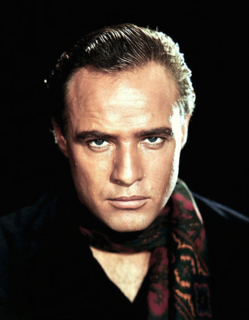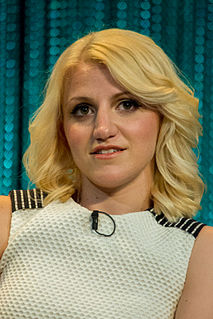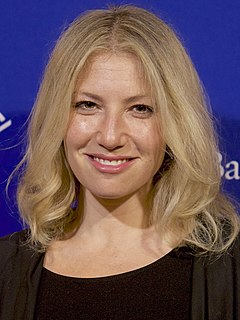A Quote by Marlon Brando
The close-up says everything, it's then that an actor's learned, rehearsed behavior becomes most obvious to an audience and chips away, unconsciously, at its experience of reality. In a close-up, the audience is only inches away, and your face becomes the stage.
Related Quotes
TV acting is so extremely intimate, because of the peculiar involvement of the viewer with the completion or "closing" of the TV image, that the actor must achieve a great degree of spontaneous casualness that would be irrelevant in movie and lost on the stage. For the audience participates in the inner life of the TV actor as fully as in the outer life of the movie star. Technically, TV tends to be a close-up medium. The close-up that in the movie is used for shock is, on TV, a quite casual thing.
To do a portrait today, I decide how close I can get to my subject. First, of course, mentally or intellectually, then in the viewfinder. Music cues the subject and me when to shoot. The music played during a photography session is most important - stimulating to the subject and to me. As in a film, the music builds or becomes quiet, romantic; just one note sets the actor up to emote for his audience. I want a reciprocal portrait, not a bureaucratic one
I suppose it is submerged realities that give to dreams their curious air of hyper-reality. But perhaps there is something else as well, something nebulous, gauze-like, through which everything one sees in a dream seems, paradoxically, much clearer. A pond becomes a lake, a breeze becomes a storm, a handful of dust is a desert, a grain of sulphur in the blood is a volcanic inferno. What manner of theater is it, in which we are at once playwright, actor, stage manager, scene painter and audience?
In film, the camera can get an array of shots so the audience can see the emotion the character is giving off. Using close-ups on the character's face really helps get the message across. On stage, you can't do that. But the stage has that live feeling that you can't get anywhere else because the audience is right there.
On camera, the audience can see your eyes close up - they can see behind your eyes - and when you're on stage, you need to make sure that the person sitting in the back row can feel what's happening behind your eyes, even if they can't see them. Having a live audience is exhilarating and exciting all on its own, but you know, it is quite different.
All "bad" presentations struggle to keep the audience interested. The audience squirms wishing they could escape. The audience has given the presenter an hour of their life, so they want that hour to be useful. It's disrespectful of a presenter to not show up rehearsed and prepared with information and insights that will improve the lives of the audience in some way. Presenting will do only one of two things for you: it will either diminish your credibility or yield results. Most bad presentations hurt the presenter's credibility.
In film, the camera can get an array of shots so the audience can see the emotion the character is giving off. Using close-ups on the characters face really helps get the message across. On stage, you cant do that. But the stage has that live feeling that you cant get anywhere else because the audience is right there.
There is convincing evidence that the search for solitude is not a luxury but a biological need. Just as humans posses a herding instinct that keeps us close to others most of the time, we also have a conflicting drive to seek out solitude. If the distance between ourselves and others becomes too great, we experience isolation and alienation, yet if the proximity to others becomes too close, we feel smothered and trapped.
When someone says "that resonates with me" what they are saying is "I agree with you" or "I align with you." Once your ideas resonate with an audience, they will change. But, the only way to have true resonance is to understand the ones with whom you are trying to resonate. You need to spend time thinking about your audience. What unites them, what incites them? Think about your audience and what's on their mind before you begin building your presentation. It will help you identify beliefs and behavior in your audience that you can connect with. Resonate with.

































